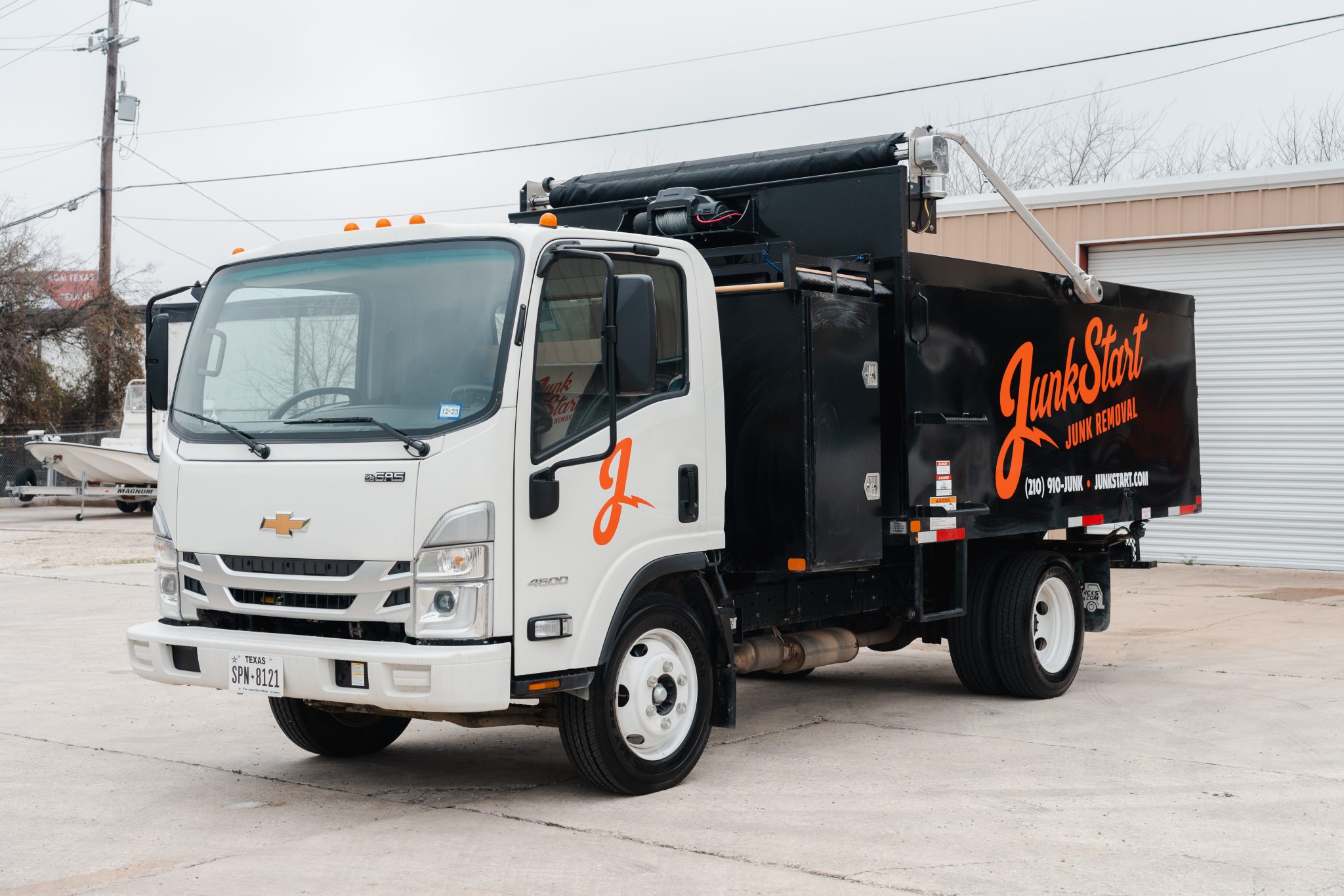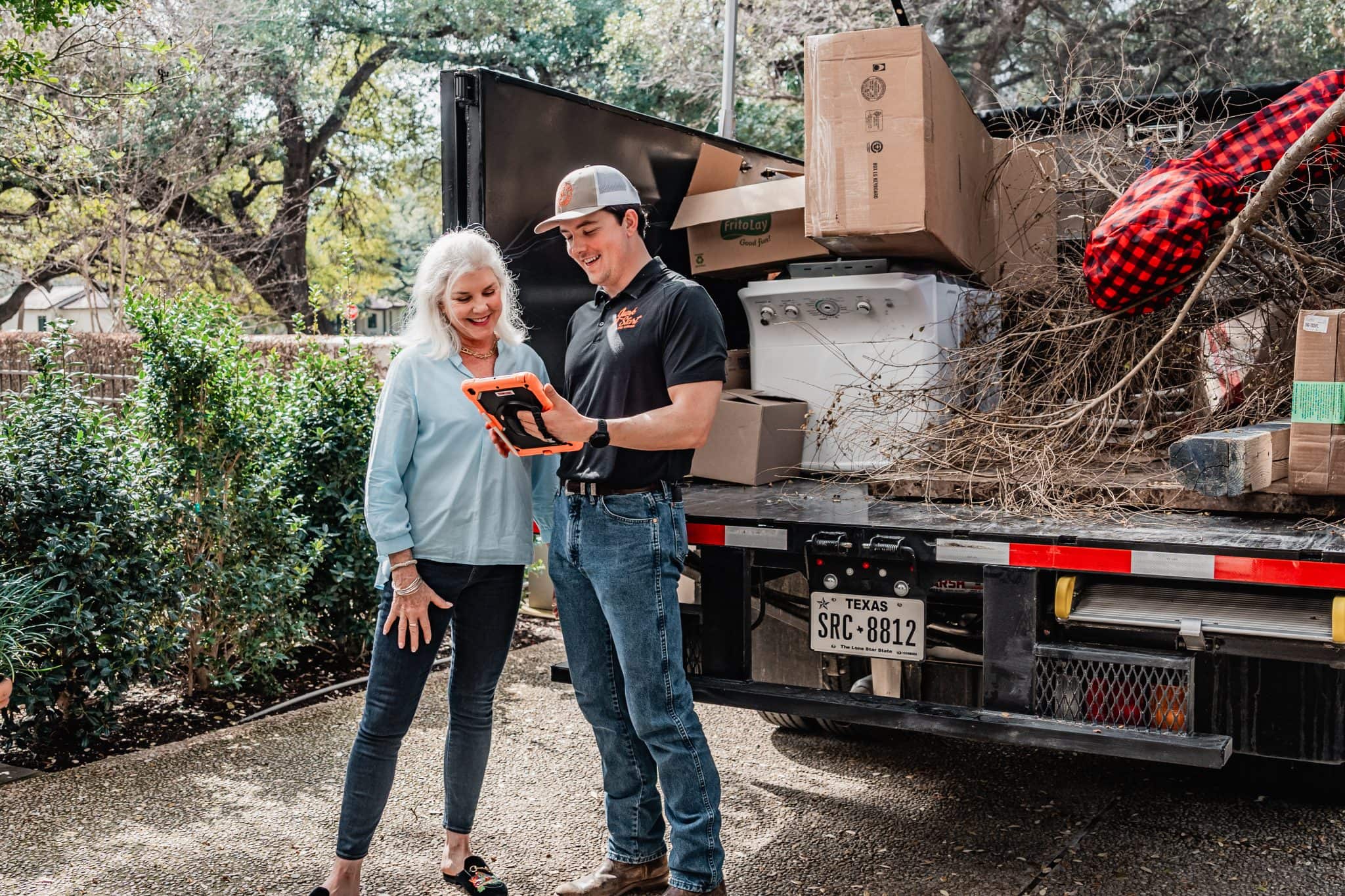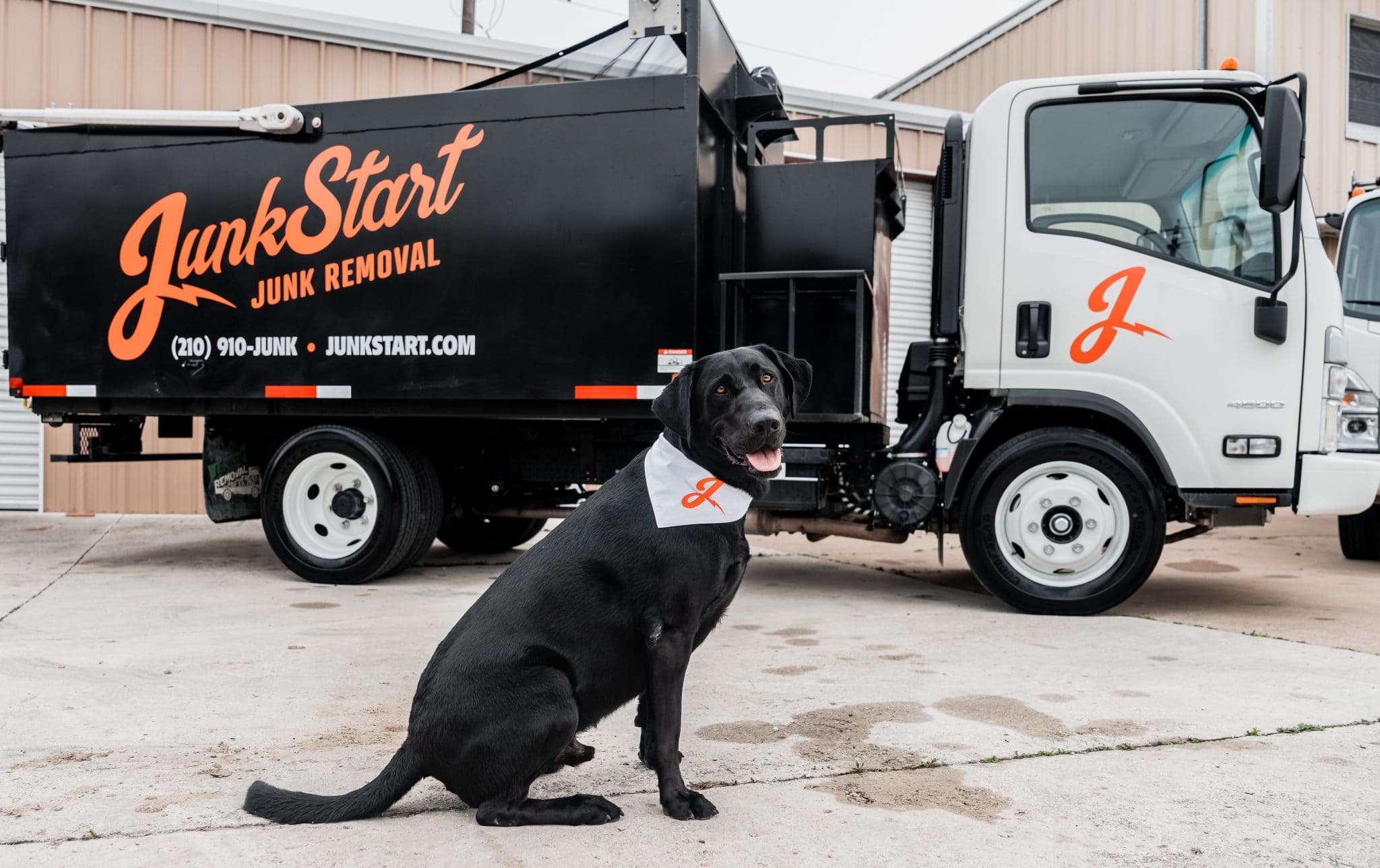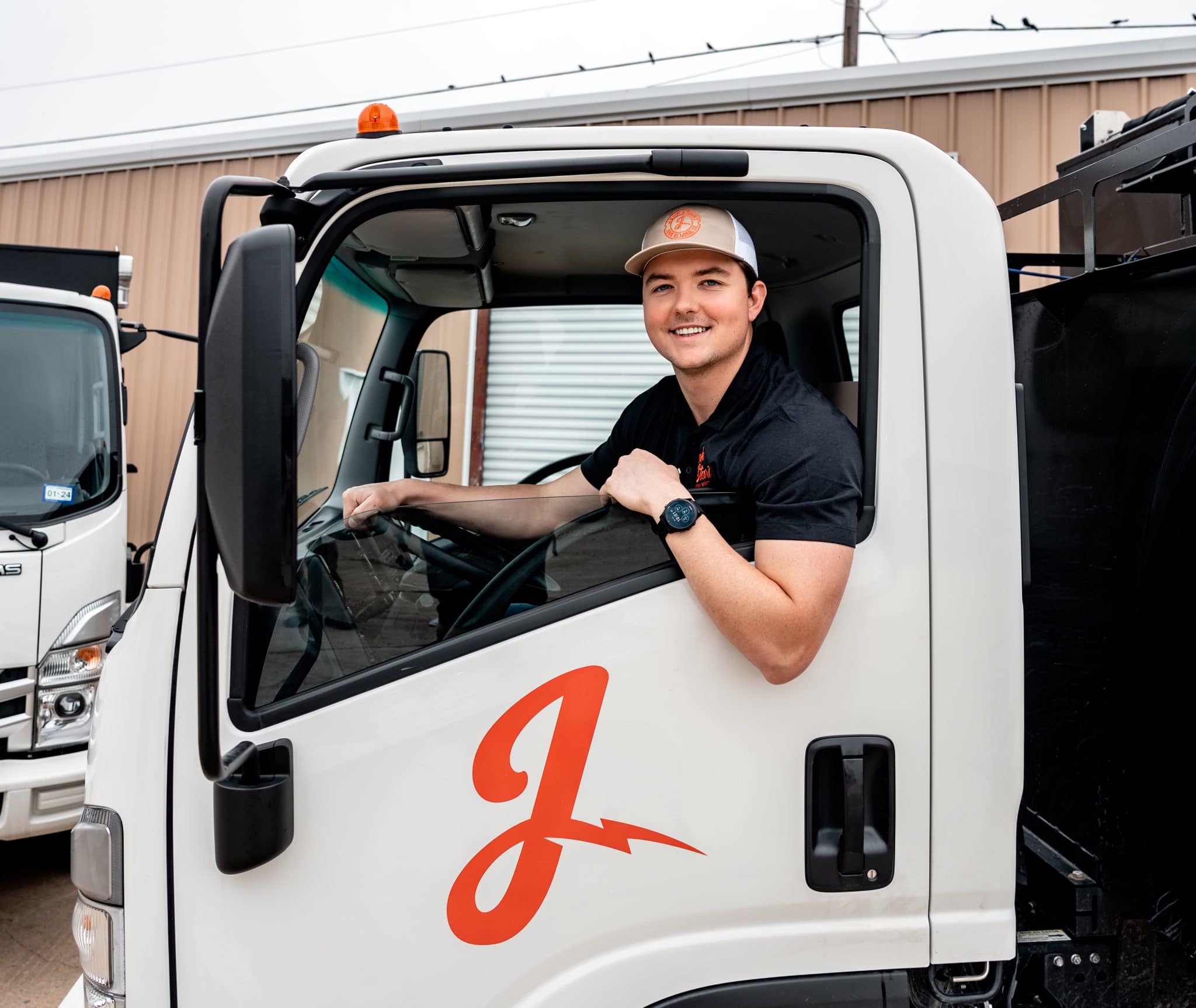When you talk to Daniel McCarty, you don’t get the feeling you’re speaking to a man tinkering at the edges of an old idea. You get the feeling you’re talking to someone tearing the whole thing down, just to rebuild it better.
From his home base in San Antonio, McCarty has turned his company, JunkStart Junk Removal, into one of the most fascinating new names in the home service and commercial sector. McCarty is leading what he calls a “respectful rebellion” against an outdated junk removal model that’s been largely unchanged since the early 90’s.
“We’re not conditioned to conform to the status quo,” McCarty said. “If the industry needs disruption, we’re here to do it.”
From Redneck Roots to Radical Rethink
McCarty’s entrepreneurial instincts were forged early. His father built and bought businesses in a kind of self-taught, hands-on fashion that McCarty lovingly calls “the old-fashioned redneck way.” One day, his dad was pouring concrete. Then, he noticed the guys delivering it were busy, so he bought a ready-mix company. That turned into a sand and gravel business. Then a landfill. Before long, the McCarty family owned a portfolio of companies that touched nearly every corner of the waste industry.
“I grew up watching what it looked like to just get it done,” he said. “That entrepreneurial spirit — the wake you can cast in your community — it stuck with me.”
After playing football at Southern Methodist University and working in the family businesses, McCarty watched several of them sell. With some capital and a restless drive, he asked himself what kind of company he really wanted to build.
“The idea was simple,” he said. “I wanted to start a franchisor. I wanted to build a great, big business with great fundamentals. And I knew waste management. So I thought: let’s start there.”
At first, McCarty did what most newcomers do. He started by following the rules. Junk removal, as he saw it, was already a crowded field dominated by a few well-known national brands and dozens of regional imitators. So he decided to build a company that looked cleaner, smarter, and a little sharper around the edges. JunkStart launched in early 2023 with slick black trucks and a bold lightning bolt logo that symbolized what McCarty wanted the experience to feel like: energy, empowerment, action.

“The idea came from that rush you get when you finally clean the garage you’ve been ignoring for months,” he said. “It’s that jolt of energy — that jump start — that sense of conquering something. That’s the feeling we wanted to bottle.”
Breaking the Mold: Pay by Weight
But branding wasn’t enough for McCarty. Within a year, he realized the traditional junk removal model that charges customers by volume was fundamentally flawed. In the old system, customers were quoted based on how much space their items took up in a truck. It often went something like this: a crew member would arrive, glance at the pile of items, and make an estimate on the spot. Half a truck might cost $500, three-quarters might be $650, and a full truck could be $800. It was dependent on how the worker interpreted the load that day. Two different customers with nearly identical piles could end up paying very different prices.
“It was completely arbitrary,” McCarty said. “There was no real way to guarantee fairness, and customers could sense that.”
He recalled a moment that changed everything: learning that some junk companies even had a term for the practice of overcharging certain customers… the “grandma tax.” “That was the entrepreneurial bell in my ear,” McCarty said. “I thought, this has to die. There’s a better way to do this.”
A Solution in a Familiar Place
The solution came from the world he grew up in: landfills. There, everything is weighed and charged by the pound. McCarty wondered why couldn’t junk removal do the same? He sold all of his trucks, took a financial hit, and invested in developing a proprietary scale system that could weigh loads in real time.
The move changed everything.
“We brought the scales to our customers,” he said. “We made pricing transparent, consistent, and fair. You weigh it, you pay it. That’s it.”
McCarty often compares the difference to ordering at a deli counter. “With the old model, it’s like asking for two pounds of ground beef and having the guy behind the counter look you up and down and say, ‘That’ll be forty bucks.’ Then the next customer asks for the same thing and pays twenty,” he explained. “It’s arbitrary” With the pay by weight model, it’s x dollars a pound; you see the scale, you see the price. It’s transparent and fair.
The new system also opened doors with commercial clients like property managers and developers. “Before, a manager would get a bill for six hundred dollars and have no idea why,” McCarty said. “Now they can point to the weight — 1,200 pounds — and justify it instantly. It’s easy to explain, easy to trust.”

JunkStart’s new “Pay by Weight” system was more than a clever idea, it was a seismic shift. It instantly eliminated the guesswork, gave customers confidence, and restructured the economics of the business. Gross margins jumped from the low 40s to about 70 percent. Commercial clients such as property managers, apartment complexes, and contractors began to take notice.
“We went from 95% residential to over 50% commercial revenue,” McCarty said. “It’s just a better model for everyone.”
A Brand Built for the Bold
Spend five minutes talking with McCarty and you’ll hear echoes of both strategist and storyteller. He talks about creative destruction, the economist’s term for innovation that reshapes entire industries. When he speaks it sounds like it’s part of his company DNA.
“We’re changing the way the industry functions,” he said. “The big guys have incredible systems, but it’s harder for them to pivot quickly. We’re smaller, more agile, and can innovate faster to better serve customers.”
That positioning has given JunkStart a distinctive voice in a market where, as McCarty puts it, “many brands focus on being as friendly and polished as possible.” He smiles when describing it. “There’s a lot of good people doing good work in this industry,” he said. “We just wanted to stand out by being real, authentic, straightforward, and proud of the service we provide.”

Even Boone, his loyal canine sidekick, has become part of the brand’s approachable personality. Boone’s face can be spotted on social media and in internal huddles, adding warmth to a business built on toughness.
“I guess you could say Boone’s part of the leadership team,” McCarty joked. “He’s in more photos than I am.”
Growing with Purpose
JunkStart’s growth strategy is just as intentional as its brand. With startup costs between $200,000 and $400,000, McCarty is looking for well-capitalized entrepreneurs who see the brand as a long-term empire, not a side hustle.
“We want people who have the resources to build real enterprise value,” he said. “This isn’t a ‘chuck in a truck’ business. This is about becoming number one in your market. Because if you’re not number one in your market, how can we be number one in the world?”
The model emphasizes a blend of digital marketing and old-school relationship building. Franchisees are encouraged to invest heavily in both. This includes Google ads and boots on the ground. “I love that we’re not completely dependent on digital,” McCarty said. “We build real relationships in our communities. It’s nice when your week starts with jobs already on the schedule.”
Real Talk on Recycling and Authenticity
For McCarty, authenticity extends to how JunkStart approaches recycling and donations. The company donates or recycles up to 40 percent of what it collects. This though is not as a marketing tactic, but because it’s simply the right way to do business.
“There’s always a bit of altruism in what we do,” McCarty said. “When someone else can benefit from an item instead of it going to waste, that’s a win for everyone. It’s also just smart business, if we can donate or recycle, we save on landfill costs, and our customers appreciate knowing their junk is going somewhere useful.”
By pairing that approach with JunkStart’s pay-by-weight model, McCarty has built a business that’s both principled and practical. Charging by the pound means every customer knows exactly what they’re paying for. There is no vague estimates or surprise fees. “It’s fair and transparent,” he said. “People can see the scale, they know what they’re paying for, and they know we’re handling their items responsibly.”

That commitment to fairness has clearly resonated with customers and communities alike. JunkStart has earned more than 750 five-star reviews, maintaining a flawless 5.0 rating. This is a remarkable achievement in an industry often defined by inconsistency. The consistent praise reflects the team’s emphasis on reliability, respect, and attention to detail. These are qualities that have turned everyday jobs into repeat business and loyal word-of-mouth advocates. It’s a sign that the company’s transparent, customer-first approach isn’t just working; it’s setting a new standard for what service should feel like.
That straightforward mindset, honest, practical, and community-minded reflects McCarty’s larger philosophy. “We just believe in being real with people,” he said. “That’s the kind of company I want to build.”
Building a Culture that Gives Back
Beyond innovation, McCarty’s favorite topic is people. He’s proud of the culture JunkStart has built. It’s a culture that’s high-performance, high-accountability, but also deeply rewarding. His company philosophy, “Grow to Give,” defines how he sees the brand’s larger purpose.
“We want to create a framework for others to actualize their potential and give their greatest gifts in service to others,” he said. “No one comes to work just to make Daniel money. You grow so you can give more — to your family, your team, your community. That’s what we’re building.”
The Road Ahead
McCarty’s vision for the next five years is as clear as it is ambitious. He wants JunkStart to become the biggest junk removal brand in the world, with about 100 to 125 strong franchise owners building out territories across the country.
“We’re setting the Monopoly board,” he said. “In five years, the right players are going to be on it. And then it’s pedal to the metal.”
It’s a bold goal, but McCarty isn’t the type to apologize for ambition. He’s already proven that big bets, like selling every truck to reinvent his entire model, can pay off. And if there’s one thing you learn from talking to him, it’s that his confidence isn’t arrogance; it’s conviction.
“We’re not afraid to swing big,” he said. “Because when you believe you can do something better, you owe it to yourself and your customers to prove it.”
McCarty has also made significant investments in JunkStart’s future, expanding his corporate team and infrastructure to match his ambitions. In recent months, he’s brought on leaders in operations, marketing, and franchise development. These are seasoned professionals who share his commitment to building something lasting. “We’re not just building a brand,” he said. “We’re building the team that will support hundreds of franchise owners across the country.”
That kind of foresight that pairs big vision with disciplined execution is what McCarty believes will keep JunkStart growing sustainably for years to come.
Boone would probably agree.